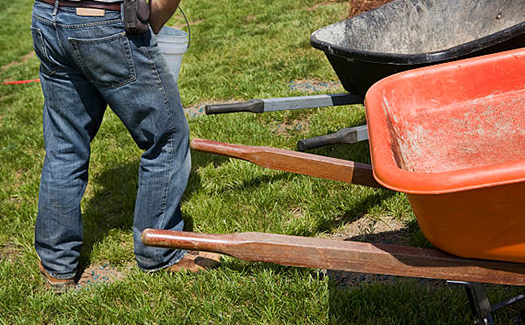Winter weather can wreak havoc on a landscape. In some plants, winter weather can cause wilting, discoloration, and even death. It can also break branches on trees and shrubs and weaken their structural integrity. Keep your commercial landscape in good shape and protect your investment. Here are five ways to ensure that your landscape is winter-ready and will look nicer in the spring.
Keep Your Landscape Free Of Salt Deice
Many of us apply deicer to our walkways and roads to keep visitors safe. The cheapest and most widely used deicer is rock salt. Despite having the potential to improve traffic safety, it harms vegetation. Rock salt injury to buds and branches may cause plants to wither and die. The snowplow leaves behind snow, ice, and slush when it goes by, leaving a ridge at the end of your driveway. Don’t pile this up. Before piling the snow, you’ve cleared your driveway; spread the rock salt you use to de-ice it to prevent harm.
Put Mulch Into The Mix
Any time of year, mulch works wonders for gardens and is a crucial component of winter maintenance. In the winter, mulch serves as a blanket, protecting the yard. It aids in preserving the continuous temperature of soils by preventing disruptive freeze-thaw cycles. Mulch also insulates plants that are only moderately robust and aids in maintaining soil moisture.
Following the first severe freeze, spread a thick 3- to 5-inch layer of mulch. For winter applications, wood mulch does not need to be purchased. Because they won’t compact, lightweight materials like chopped leaves and pine straw are best.
Winter Irrigation
Although it may seem pointless to hydrate landscapes in the winter because many plants go dormant, there are several advantages to doing so. Dry soil increases the risk of root rot in cold weather because damp soils retain more heat than dry soils. Make sure to irrigate all crops a minimum of 24 hours before the projected arrival of harsh cold weather.
Watch out for plants in pots and beneath canopies, which tend to dry up faster than any other parts of the landscape. Most water is lost by evergreen trees and plants in cold, dry weather, especially on windy days. These plants require extra irrigation throughout the winter months, at least once a month, if there is insufficient rainfall. With all these, it is best to say that winter irrigation is as beneficial as any seasonal irrigation.
Winter Pruning
Pruning is a vital component of plant maintenance, but it’s most important to do it at the right time of year. While dormant, some plants need pruning in the winter. When your plants emerge in the spring, this gets them ready to concentrate on producing flowers and fruit. Additionally, it keeps your trees in good shape and lowers their risk of getting sick.
Build A Snow Fence For Protection
Create a snow fence to protect specific plants from wind and snow. Making a small snow fence is an easy project that takes little time to complete. A snow fence helps your plants reduce snow stress, giving them security during the harsh season.
Do you need help gearing up and maintaining your commercial landscape for the harsh winter weather? Rahn Companies is pleased to offer professional care for your trees and plants. Get a free quote by giving us a call today.

